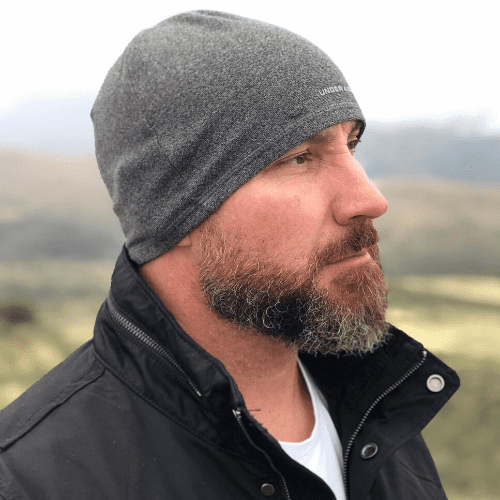[Short sentences about our services in Arizona - Please make it relevant]
Combining the time-honored wisdom of the 12 steps with professional therapy can provide a powerful framework for overcoming substance use disorders and building a strong foundation for long-term recovery.
Understanding the 12-Steps
The 12 Steps, initially developed by Alcoholics Anonymous (AA) and later adapted by other groups like Cocaine Anonymous (CA), is a spiritual program that provides a structured pathway to recovery. The steps guide individuals through surrendering to a higher power, taking personal inventory, making amends, and continuing personal growth and service to others.
The 12-Steps are:
- Admitting powerlessness over the addiction and the unmanageability of life
- Coming to believe that a higher power can restore sanity
- Deciding to turn will and life over to the care of a higher power
- Making a searching and fearless moral inventory
- Admitting to God, self, and another human being the exact nature of wrongs
- Becoming entirely ready to have God remove all defects of character
- Humbly asking God to remove shortcomings
- Making a list of all persons harmed and becoming willing to make amends
- Making direct amends wherever possible, except when doing so would cause injury
- Continuing to take personal inventory and promptly admitting when wrong
- Seeking through prayer and meditation to improve conscious contact with God, praying for knowledge of God’s will and the power to carry it out
- Having had a spiritual awakening, carrying the message to others, and practicing these principles in all affairs
While the language is rooted in spirituality, the 12 steps can be adapted to an individual’s beliefs and higher power, be it God, nature, the group itself, or some other conception. The power of the steps lies in the actions taken and the support and accountability provided by working them with a sponsor and a group.
Absolutely. While the 12-step language includes references to God, the program itself is spiritual, not religious. You're encouraged to interpret the concept of a Higher Power in whatever way resonates with you, whether that's a traditional understanding of God, nature, the universe, the collective wisdom of the group, or some other benevolent force greater than yourself.
Most important is that you're open to the idea that you can't recover alone and need to connect with something outside of yourself for strength and guidance. Many people from all belief systems, including atheists and agnostics, have found great success and spiritual growth in 12-step programs.
Understanding the Concept of a Higher Power in 12-Step Programs
One of the foundational elements of 12-step programs like Alcoholics Anonymous (AA) and Cocaine Anonymous (CA) is the concept of a Higher Power. While the steps refer to “God,” it’s important to understand that these programs are spiritual, not religious.
A Personal Understanding of a Higher Power
The language of the steps emphasizes “God as we understood Him,” which allows for a very personal interpretation of what that Higher Power might be. For some, it may be the traditional concept of God from a particular religious faith. For others, it could be a more general sense of a power greater than oneself, such as nature, the universe, or the collective wisdom of the group.
What’s important is that this Higher Power be loving and caring and that the individual can turn to it for guidance and strength in their recovery journey. Many people find comfort in the idea that they are not alone in their struggle and that there is a benevolent force that can help them overcome their addiction.
Working the Steps
Recovery is a highly personal and lifelong process; there is no single “right” way to approach the 12 steps. Many people find that they revisit the steps multiple times throughout their recovery as they face new challenges and grow in their understanding of themselves and their addiction.
Steps One, Two, and Three are often considered the foundation upon which the rest of the program is built:
- Admitting powerlessness over the addiction and the unmanageability of life
- Coming to believe that a Higher Power can restore sanity
- Deciding to turn will and life over to the care of that Higher Power
Many people in recovery make it a daily practice to work on these steps, remembering their powerlessness, renewing their faith in their Higher Power, and surrendering their will. This daily practice can provide a strong spiritual foundation for the rest of the recovery journey.
The Effectiveness of 12-Step Programs
Despite some misconceptions, research has shown that 12-step programs can be highly effective in helping people achieve and maintain sobriety. A study published in the Cochrane Database of Systematic Reviews found that peer-led 12-step programs can be more effective than professional mental health therapy alone in helping people abstain from alcohol and drugs.
The study’s lead author, Dr. John Kelly of Harvard Medical School, noted that this research helps to dispel some of the misinformation that has circulated about the efficacy of 12-step programs. The study provides strong evidence that the support, encouragement, and accountability offered by these programs can play a crucial role in overcoming addiction.
💡
The 12 Promises of AA, as outlined in the Big Book of Alcoholics Anonymous, are:
1. We will know a new freedom and a new happiness.
2. We will not regret the past nor wish to shut the door on it.
3. We will comprehend the word serenity.
4. We will know peace.
5. No matter how far down the scale we have gone, we will see how our experience can benefit others.
6. That feeling of uselessness and self-pity will disappear.
7. We will lose interest in selfish things and gain interest in our fellows.
8. Self-seeking will slip away.
9. Our whole attitude and outlook upon life will change.
10. Fear of people and of economic insecurity will leave us.
11. We will intuitively know how to handle situations which used to baffle us.
12. We will suddenly realize that God is doing for us what we could not do for ourselves.
These promises serve as a beacon of hope for those in recovery, highlighting the profound positive changes that can occur through working the 12-Steps and maintaining a commitment to sobriety.
Therapy and Its Role in Addiction Recovery
Therapy is a powerful tool for addressing mental health issues and emotional distress. It involves working with a trained professional, such as a psychologist, psychiatrist, social worker, or licensed counselor, to gain insight into life challenges and develop coping strategies.
At Cornerstone Healing Centers, we bring together science and spirituality to help you along this process.
Our facilities offer an introduction to the 12-Steps and therapy to begin your recovery journey.
Types of Therapy
Many different types of therapy can be effective in treating mental health disorders and supporting addiction recovery. Some common types include:
- Cognitive-behavioral therapy (CBT): Focuses on identifying and changing negative thought patterns and behaviors
- Dialectical-behavioral therapy (DBT): Emphasizes mindfulness, emotion regulation, and interpersonal effectiveness
- Accelerated resolution therapy (ART): Uses eye movements and imagery to help process traumatic memories
- Eye Movement Desensitization and Reprocessing (EMDR) therapy Uses bilateral stimulation to help process traumatic memories.
- Experiential therapy: Uses activities like role-playing, art, and music to help individuals process emotions and experiences
The specific type of therapy used will depend on the individual’s needs and the therapist’s expertise. Often, a combination of approaches may be used to address different aspects of the individual’s mental health and addiction.
Research has shown that 12-step programs can be highly effective in helping individuals achieve and maintain sobriety. A study published in the Cochrane Database of Systematic Reviews found that participation in 12-step programs, like Alcoholics Anonymous, can lead to higher rates of abstinence compared to other interventions, such as cognitive-behavioral therapy alone.
The Connection Between Mental Health and Addiction
There is a strong link between mental health disorders and substance use disorders (SUD). Many people who struggle with addiction also have a co-occurring mental health disorder, such as depression, anxiety, or post-traumatic stress disorder (PTSD).
While having a mental health disorder does not necessarily cause addiction (or vice versa), there are common risk factors that can contribute to the development of both. Genetics plays a significant role, with research suggesting that 40-60% of an individual’s vulnerability to SUD can be attributed to genetic factors. Similarly, certain genetic predispositions can increase the risk of developing mental health disorders.
In some cases, individuals with mental health disorders may turn to substance use as a form of self-medication, attempting to alleviate their symptoms. However, substance use can worsen mental health symptoms over time and lead to changes in brain structure that increase the risk of developing a full-blown SUD.
The Importance of Dual-Diagnosis Treatment
Given the strong connection between mental health and addiction, individuals who struggle with both must receive comprehensive, integrated treatment that addresses both disorders simultaneously. This is known as dual-diagnosis treatment.
In a 12-step program, individuals may begin to discuss traumatic experiences or painful emotions as they work through the steps, particularly in the Fourth Step (making a searching and fearless moral inventory). However, without therapeutic support and coping strategies, the emergence of these issues can be overwhelming and may even trigger cravings to use substances to cope.
On the other hand, if an individual only receives therapy for their mental health disorder without addressing their addiction, they may lack the specific support and accountability provided by a 12-step program to maintain their sobriety.
By combining the spiritual principles and peer support of a 12-step program with evidence-based therapeutic approaches, individuals can develop a comprehensive set of tools for managing their mental health and maintaining their recovery. They can process difficult emotions and experiences in a safe, supportive environment while also building a strong network of sober peers who understand their struggles.
Real-Life Examples and Key Concepts
John struggled with alcohol addiction for years before finding help through a combination of AA meetings and individual therapy. The 12 steps provided him with a spiritual foundation and a supportive community, while therapy helped him address the underlying anxiety that had driven his drinking. With this comprehensive approach, John has been able to maintain his sobriety and build a fulfilling life in recovery.
Many individuals who struggle with addiction also have co-occurring mental health disorders, such as depression or trauma. Dual-diagnosis treatment addresses both the addiction and the mental health concerns simultaneously. By integrating 12-step principles with evidence-based therapies, dual-diagnosis programs provide a comprehensive approach to healing.
The recovery community extends beyond the walls of treatment centers and 12-step meetings. It includes a vast network of individuals who support each other in maintaining sobriety and building fulfilling lives. This community provides ongoing encouragement, accountability, and a sense of belonging that can be crucial for long-term success in recovery.
Finding Hope and Healing at Cornerstone
At Cornerstone Healing Center, we truly believe in the transformative power of combining 12-step principles with professional therapy. We have seen firsthand how this comprehensive approach can help individuals achieve sobriety and develop the tools and support they need to build a fulfilling life in recovery.
Our team is deeply committed to the principles of Alcoholics Anonymous and other 12-step programs. Many of our staff members are recovering and have experienced the life-changing impact of working the steps. We understand the courage it takes to admit powerlessness, surrender to a Higher Power, and take a searching and fearless moral inventory. We also know the incredible sense of freedom, joy, and connection that comes from living a life guided by these principles.
At the same time, we recognize that addiction and mental health are complex issues that often require professional intervention. That’s why we have assembled a team of skilled therapists trained in evidence-based practices like cognitive-behavioral, dialectical behavior, and trauma-focused therapy. By combining the wisdom of the 12 steps with the insights of modern psychology, we help our clients heal from the inside out.
When you walk through the doors of Cornerstone Healing Center, you’ll feel the spirit of recovery that permeates every aspect of our program. From our 12-step meetings to our therapy sessions to our community activities, everything we do is focused on helping our clients build a strong foundation for long-term recovery.
Every person who struggles with addiction deserves the opportunity to experience the hope, healing, and freedom that recovery offers. We are passionate about carrying the message of the 12 steps and supporting our clients every step of the way on their journey.
Take the first step towards a new way of life, and let us walk alongside you on this journey. Together, we can help you build the happy, healthy, and fulfilling life you deserve.
Key takeaways 📝
- The 12 steps and therapy complement each other, addressing the spiritual, emotional, and psychological aspects of addiction for comprehensive recovery.
- Interpreting the concept of a Higher Power in the 12 steps is a personal journey that requires openness to surrender to something greater than oneself.
- Addiction often co-occurs with mental health disorders, necessitating integrated treatment that addresses both issues simultaneously through 12-step principles, evidence-based therapies, and ongoing support.









